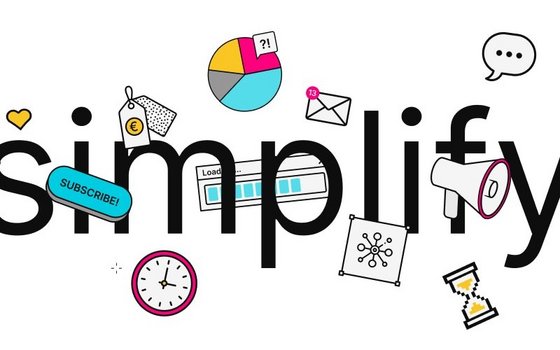The Future of Healthcare Has Entered the Chat: Leveraging AI Assistants in Medical Practice
17. October 2024
Author:
Briana Bolger-Schuth (cyperfection)
Reading time:
7 min
Tags:
AI, Chatbots, Healthcare, HCP

Enhancing Access to Critical Information
Healthcare is a field of constant innovation, with new medications, treatment options, and medical knowledge emerging regularly. For HCPs, staying current on all aspects influencing their work can be challenging. Chatbots, trained on vast amounts of specialty-specific data, can serve as instant information sources. They can summarize clinical guidelines, provide quick facts about specific conditions, and offer treatment protocol reminders. This rapid access to information is particularly valuable in time-sensitive situations or when dealing with unfamiliar conditions. By ensuring HCPs have the most up-to-date information at their fingertips, chatbots support evidence-based practice and potentially improve patient outcomes.
Medical Coding Assistance
Medical coding is a complex, time-consuming task crucial for proper billing and record-keeping. Chatbots trained on coding data can significantly streamline this process. They can suggest appropriate codes based on consultation notes, keep HCPs updated on the latest coding standard changes, and flag potential errors or inconsistencies. By automating much of the coding process, HCPs can dedicate more time to patient care, potentially leading to improved job satisfaction and better patient outcomes.
Documentation Support
Accurate and efficient documentation is vital in healthcare but often time-consuming. While many HCPs already use voice notes for later transcription, AI-powered chatbots can take this a step further. They can transcribe patient consultations in real-time, organize notes into structured formats, and highlight key points from consultations for quick review. This assistance can significantly reduce paperwork time, allowing HCPs to focus more on direct patient care while improving the quality and consistency of medical records.
Bridging Language Barriers
In our increasingly diverse society, language differences can significantly impact patient care. AI-powered translation capabilities enable HCPs to communicate more effectively with patients who speak different languages. These tools can improve understanding of patients' health history and current situation, enhance the ability to make patients feel comfortable, heard, and valued, and enable more effective communication of treatment plans and medication instructions. By facilitating clearer communication, these tools can enhance patient safety and potentially improve treatment compliance.
Enhancing Empathy and Communication Skills
Effective communication and empathy are cornerstone skills in healthcare. While human interaction remains irreplaceable, chatbots can serve as valuable tools for enhancing these abilities. They can simulate various patient interactions for practice in a low-stakes environment, provide feedback on communication style, and offer scenarios to improve cultural competence and sensitivity. For example, an HCP could use a chatbot to practice delivering difficult news or explaining complex treatment options. This preparation can lead to more confident and empathetic real-world interactions with patients.
Mitigating Risks
While chatbots offer numerous benefits, it's crucial to approach their integration responsibly. Key challenges to consider include data privacy, system integration, and information accuracy. Ensuring patient information remains secure and compliant with regulations like HIPAA is paramount. Seamlessly incorporating chatbots into existing healthcare IT infrastructure and verifying that information provided by chatbots is up-to-date and correct are also critical considerations.
A significant concern is the potential for "hallucinations" – instances where AI generates nonsensical or incorrect answers. To mitigate this risk, we suggest implementing robust human oversight, use case-specific training, and requiring source citations. Experts who can recognize when responses don't align with medical knowledge are crucial, while chatbots trained on specific jobs and use-cases are less likely to generate irrelevant information. Enabling chatbots to cite their sources can help verify information accuracy.
Looking to the Future
As AI technology advances, we can expect chatbots to evolve in their capabilities. Future developments may include more sophisticated natural language processing, enhanced integration with electronic health records, and advanced analytics to assist in preventive care. Chatbots represent a significant opportunity for HCPs to enhance their practice, improve patient care, and reduce administrative workload. By thoughtfully implementing these tools, healthcare professionals can stay at the forefront of medical innovation while focusing on what matters most – the well-being of their patients.
Better Together
When creating generative AI assistants, our goal is always to seemlessly augment the ablities of the person it’s made for. It's crucial to remember that chatbots are meant to complement, not replace, human expertise in healthcare. Their implementation must always be guided by careful consideration of both benefits and risks. Digital assitatnts give HCPs the ability to save time by helping them access information effortlessly while still keeping that data secure and correct across various regions and specialties.
As this technology evoloves, so will the ways that it can support us. The key to success will be striking the right balance between leveraging AI's capabilities and maintaining the irreplaceable human touch in patient care. By using these technologies responsibly, we can usher in a new era of healthcare – one where AI assistants empower HCPs to provide more efficient, accurate, and patient-centered care.
![[Translate to English:] [Translate to English:]](/fileadmin/_processed_/6/e/csm_teaser-kwort-navi_f358dfaf2a.jpg)


